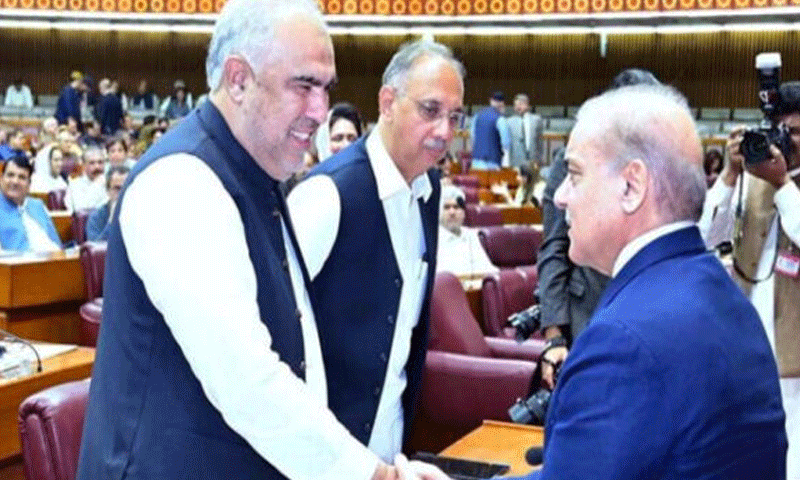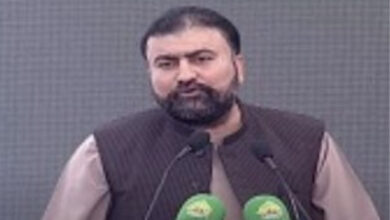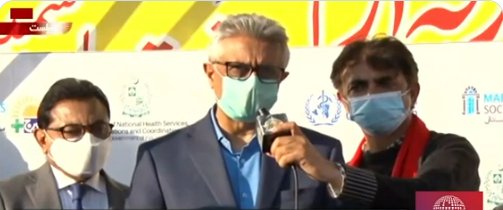Negotiations Between Government and PTI: What’s the Goal and Will They Succeed

Islamabad (Qudrat Daily) — The negotiation process between the government and Pakistan Tehreek-e-Insaf (PTI) has begun, and with time, PTI is expected to present its conditions. It will soon become clear who is serious about these negotiations and who is not. However, the key question remains: What is the purpose of these talks, and will they be successful?
Professor Tosif Ahmed, in an interview with V News, stated that it has always been a democratic tradition for the government and opposition to engage in dialogue. He pointed out that historically, Pakistan’s political landscape has seen numerous negotiations. “If we look at Pakistan’s history, during the movement against Ayub Khan, he called for the Round Table Conference, but those talks failed,” he said. “Similarly, when the first PPP government came into power, talks were held between the Pakistan National Alliance (PNA) and Zulfikar Ali Bhutto, but just when those negotiations were about to reach a conclusion, General Zia-ul-Haq imposed martial law and took over the country.”
**The Current Context of PTI-Government Talks**
Professor Tosif explained that after PTI’s failed attempt to march on Islamabad in November, the party’s position had weakened, and the government aimed to capitalize on this situation. “Before the talks even began, those involved in the May 9 incidents have already been sentenced by military courts. It seems less likely that these negotiations will have much significance,” he said. “Without the release of prisoners, what is the basis for these negotiations? However, the formation of a commission might provide some advantage to PTI.”
**Taj Haider: Negotiations Should Always Be on the Table**
Senior politician and scholar Taj Haider emphasized that dialogue between politicians is essential, and the door for negotiations should never be closed. “If a demand for Imran Khan’s release is made, it may not be feasible because it’s related to the courts. The decision will ultimately come from the judiciary,” he remarked.
**Yaseen Azad: The Need for Third-Party Involvement in 9 May Issue**
Veteran politician Yaseen Azad shared his perspective, agreeing that political party negotiations are a good practice and that the solution to issues should come from within the Parliament. However, he also noted a critical point: “Political parties may have forgotten that regarding the May 9 events, the powerful elements in the country will not want any compromise,” he said. “If negotiations are to happen regarding May 9, a third powerful party must also be included. Otherwise, these talks will remain inconclusive.”
Yaseen Azad also pointed out that the demands for justice must be fulfilled. “Among the 25 people sentenced for their involvement in the May 9 events, none of them are major figures,” he added, highlighting the discrepancy in accountability.
**Key Challenges in the Negotiation Process**
While some politicians remain hopeful that talks can resolve political tensions, others caution that without the involvement of all relevant parties—especially concerning the aftermath of the May 9 events—the negotiations may not lead to substantial results. Moreover, the political dynamics surrounding Imran Khan’s release and the ongoing legal processes will likely play a significant role in shaping the outcome of these talks.
As negotiations continue, it remains to be seen whether they will lead to meaningful resolutions or if they will be another chapter in the long history of inconclusive political discussions in Pakistan.






